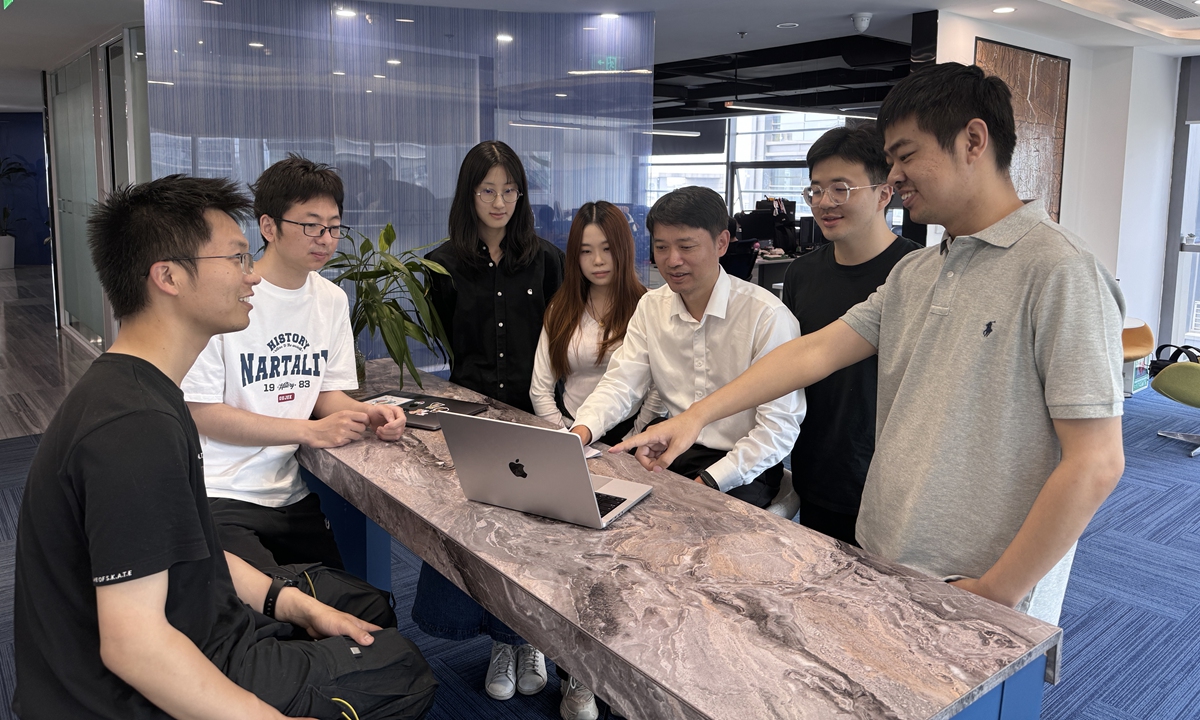
Artificial Intelligence (AI) has been making waves in various industries, and the healthcare sector is no exception.
Stanford’s AI town once went viral across the internet last year, with 25 intelligent agents living and socializing, resembling a real-life Westworld. And now, Chinese researchers have developed an AI hospital town!
In a recent interview with the Global Times, Chinese researchers shed light on the practical implications of this innovative approach on healthcare.
The concept of an AI hospital town, where virtual patients are treated by AI doctors, holds immense significance for both medical professionals and the general public. The AI hospital aims to train doctor agents through a simulated environment so that it can autonomously evolve and improve its ability to treat disease.
Recently, researchers from Tsinghua University have developed the AI hospital called “Agent Hospital.” In this virtual world, all doctors, nurses and patients are driven by large language model (LLM)-powered intelligent agents, capable of autonomous interaction.
Remarkably, AI doctors can treat 10,000 patients in just a few days. It would take human doctors at least two years to treat that many patients. Furthermore, evolved doctor agents achieved an impressive 93.06 percent accuracy rate on the MedQA dataset (US Medical Licensing Exam questions) covering major respiratory diseases. They simulate the entire process of diagnosing and treating patients, including consultation, examination, diagnosis, treatment and follow-up.
Practical benefits expected
The environment simulated in Agent Hospital consists of two main entities: patients and medical professionals. Their role information is generated by GPT-3.5 and can be infinitely expanded.
Agent Hospital includes various consultation rooms and examination rooms, requiring a series of medical professional intelligent agents to work. Therefore, researchers have designed a configuration of 14 doctors and four nurses – doctor agents are designed to diagnose diseases and formulate detailed treatment plans, while nursing agents focus on daily support.
Would the AI hospital town bring practical benefits to the real healthcare industry? The answer is yes.
Research team leader of the Agent Hospital Liu Yang, also executive dean of Institute for AI Industry Research (AIR) and associate dean of the Department of Computer Science and Technology at Tsinghua University, told the Global Times that the AI hospital town is set to transform the way doctors diagnose and treat patients, bringing immense benefits to both medical professionals and the general public.
For example, this innovative concept allows for virtual patients to be treated by real doctors, providing medical students with enhanced training opportunities. By simulating a variety of AI patients, medical students can confidently propose treatment plans without the fear of causing harm to real patients due to decision-making error, Liu said.
This simulation training enables medical students to practice diagnosis and treatment in a risk-free environment, ultimately leading to the cultivation of highly skilled doctors, according to Liu.
If the patients in the town are real and the doctors are virtual, online telemedicine services can be provided to patients. The AI hospital town utilizes a vast repository of authoritative medical knowledge, allowing AI doctors to handle thousands, even millions, of cases.
The potential for high-quality, affordable and convenient healthcare services for the public is on the horizon, as the diagnostic capabilities of AI doctors evolve from the virtual world to the real world, Liu stated.
Liu went on to say that the AI hospital town can simulate and predict various medical scenarios, such as the spread, development and control of infectious diseases in a region.

Future comes, with challenges and hopes
Some netizens have expressed that “AI simulation will explore paths that humans fundamentally do not have the time or ability to explore.”
Imagine thousands of fully automated hospitals that will save millions of lives. This future is fast approaching.
Liu revealed that after approximately six months of research and development, the AI hospital town is nearing readiness for practical application. With plans to focus on a specific application direction, the town aims to be operational by the second half of 2024.
However, despite the promising prospects, the implementation and promotion of the Agent Hospital for AI diagnosis and treatment face significant challenges.
Liu stressed strict adherence to national medical regulations, thorough validation of technological maturity, and the exploration of mechanisms for AI-human collaboration are essential to ensure that artificial intelligence technology does not pose risks to public health.
















